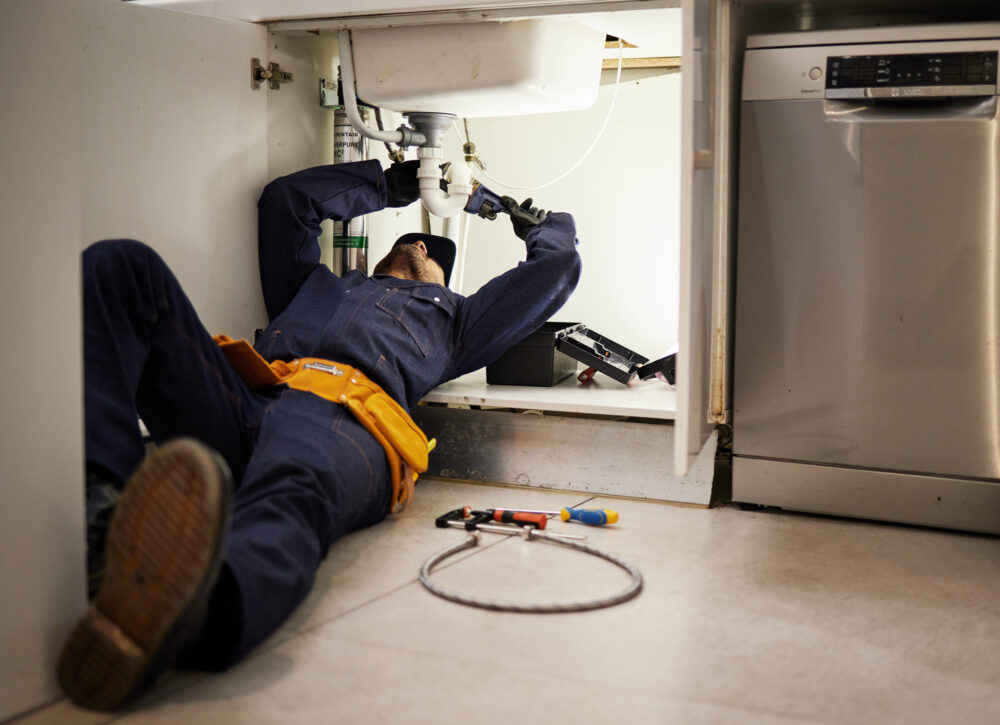Featured
Plumbing emergencies can strike without warning, often leading to water damage, mold growth, and expensive repairs. However, many issues can be avoided by taking a proactive approach to plumbing maintenance.
Implementing proactive plumbing maintenance reduces the chances of plumbing emergencies. Taking preventative measures keeps plumbing systems working properly year after year. This guide outlines valuable tips for homeowners to help protect against sudden pipe leaks, bursting toilets, and other common plumbing disasters.
Why Prevent Plumbing Issues?
Plumbing issues may seem like a nuisance, but there are important reasons why you should avoid them at all costs. Here’s why it’s so essential to prevent plumbing problems before they occur:
- Potentially Expensive Repairs – Even minor plumbing problems can become expensive if left unaddressed. A simple leaky faucet is often neglected but may later cause water damage or mold over time. Catching and fixing issues early saves you money.
- Health Hazards – Faulty plumbing can create health hazards for your family. Leaky pipes can lead to mold growth in your home. Mold causes breathing problems like asthma. Rotting sewage spreads dangerous germs. Contaminants can get into your water pipes, too. This polluted water can contain bacteria, viruses, chemicals, and lead.
- Loss of Home Functionality – Daily home functions gets disrupted when plumbing isn’t working properly. You may lose access to running water for drinking, bathing, cleaning, and more. Faulty drainage can also prevent the use of sinks or toilets.
- Property Damage – Plumbing disasters like burst pipes or sewer backups wreak havoc on your property. Flooding ruins flooring, walls, and furnishings. You may need extensive repairs.
- Inconvenience – Even minor plumbing issues cause headaches. A clogged drain stops you from using a bathroom sink. A leaky toilet runs constantly. Dysfunctional plumbing creates hassles.
Don’t wait for minor plumbing issues to become huge headaches. It’s a good thing there are ways to prevent it from happening.

How To Avoid Plumbing Emergencies?
Homeowners can take these preventative measures to prevent costly plumbing emergencies.
Regular Inspection and Maintenance
Checking your plumbing regularly and having maintenance done are the best ways to avoid emergencies like burst pipes or flooded basements. Do inspections yourself around your home to spot issues early. Look at faucets, exposed pipes, toilets, and water heaters for leaks, corrosion, or cracks.
Hire a qualified plumber every year or so for a tune-up. They have the professional know-how to keep everything working properly. Licensed plumbers like the professional plumber in Tucson do professional up keep to ensure your plumbing system stays in excellent shape.
Monitor Water Pressure
Too much water pressure can damage pipes. High pressure wears out pipes and parts. It can make leaks and bursts happen. Check your home’s water pressure often. If you notice pressure levels exceeding 80 psi, consider installing a pressure-reducing valve to regulate water flow and protect your plumbing system from damage.
Prevent Clogs
Clogged drains and pipes are a common cause of plumbing disasters, but they can be easily prevented with simple precautions. Avoid disposing of grease, food scraps, coffee grounds, and other debris down the drain.
Install drain guards or strainers to catch hair, soap scum, and other potential clog-causing materials. Regularly clean drains using natural solutions like baking soda and vinegar to maintain proper flow and prevent blockages.

Insulate Pipes
Cold weather can make pipes freeze. Frozen pipes can burst from the pressure. This causes water damage. To prevent freezing, insulate exposed pipes. Use insulation in cold areas like basements. Also, seal cracks around the house.
Do not let cold air touch the pipes. Keep cabinet doors open under sinks, too. This lets warm air flow to the pipes. Doing these things will prevent pipe freezing in winter. It avoids expensive repairs from pipe bursts.
Address Minor Leaks Immediately
Small leaks signal big problems brewing behind walls. Clues of a leak include damp spots, discoloration, or water stains. Tighten loose fittings, replace worn washers, and repair damaged seals promptly. These simple DIY repairs prevent leaks from escalating into significant plumbing emergencies.
Know Your Shut-Off Valves
Knowing how to shut off the water supply quickly in a plumbing emergency can help minimize damage and mitigate the situation. Find the main shut-off valve for your home’s plumbing. Also, locate the smaller valves for sinks and toilets. Keep a wrench close to each one. With this, you can turn the water off in a flash. This limits the water rushing out.

Conclusion
In summary, proactive maintenance and preparedness can often prevent plumbing disasters. Regularly inspect all plumbing fixtures and pipes to catch minor problems early. By following the tips outlined above and implementing strategies to avoid plumbing emergencies, homeowners can safeguard their plumbing systems against common issues and lessen the risk of costly repairs and disruptions.
Remember, investing time and effort in preventative measures can save you from headaches and expenses. Stay proactive, stay prepared, and enjoy peace of mind knowing that your home’s plumbing is in good hands.

John Smith
Image Credit: depositphotos.com























